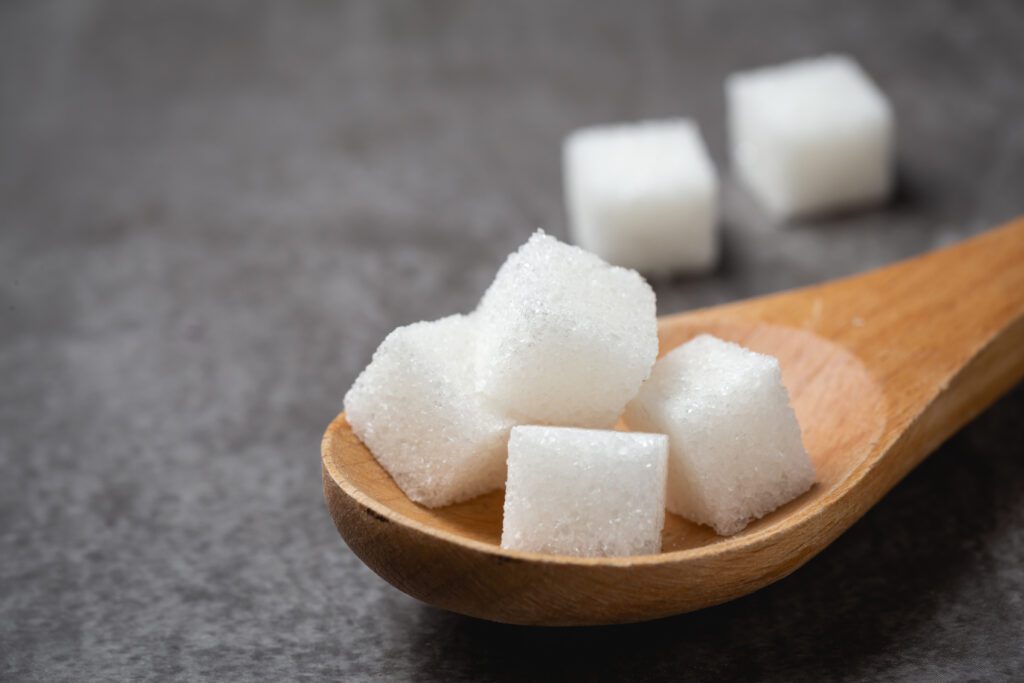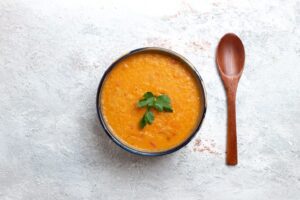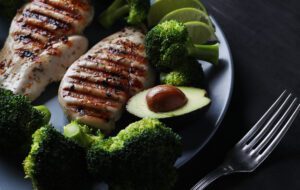A common scenario that comes up when someone is diagnosed with cancer is their diet, specifically their intake of sugar and carbs. The sugar, the carbs, the whole nut bunch: Social media and the people around you will tell you that sugar “feeds the cancer cells” and keep your carbs away from me because carbs are bad. Due to these assumptions, patients make severe alterations in their diets, which brings anxiety people, misunderstandings, and can often lead to bad health.
But, is this true? But should cancer patients avoid sugar and carbohydrates? In this article we will be answering all of these questions, breaking for you some myths, and then continuing to explain through data and case studies.
Let’s start by understanding this topic in detail: “Should cancer patients avoid sugar and carbs.”
Table of Contents
Myths Surrounding Sugar and Carbs for Cancer Patients
For many people, the connection between cancer and diet is like the weather, because nothing changes the circumstances except for human behavior. Should cancer patients avoid sugar and carbs? This question often leads to confusion. Another misconception is that there is an immediate relationship between carbs/sugar and cancer proliferation. Let us explore certain myths that are quite common in connection to this subject:
Myth 1: Sugar Directly Feeds Cancer Cells
Fact: Every cell needs glucose for energy, whether it is healthy or cancerous. When you consume sugar, cancer cells use glucose, but this glucose is necessary for every cell. Even if you avoid sugar, the body will still produce glucose from fats and proteins. Cancer cells get glucose whether you consume sugar or not.
Myth 2: Cutting Out Sugar Will Starve Cancer Cells
Fact: Cancer cells do not need dietary sugar to get glucose. Even if you completely eliminate sugar and carbs, your body will produce glucose by breaking down fats and proteins. Therefore, cancer cells cannot be starved by completely stopping sugar.
Myth 3: Carbs are as Harmful as Sugar for Cancer Patients
Fact: Not all carbs are harmful. Refined carbs (like white bread, pastries, and sugary snacks) should be avoided, but complex carbs (like whole grains, fruits, and vegetables) provide your body with essential energy and nutrients. Avoiding them can increase the risk of weakness and malnutrition.
Myth 4: All Forms of Sugar are Dangerous
Fact: Natural sugars found in fruits and dairy products are different from processed sugars. Fruits contain vitamins, minerals, and antioxidants that support your immune system. It’s okay to limit processed sugars (like candies, sodas), but it’s not necessary to avoid natural sugars.
Myth 5: Avoiding Sugar and Carbs Will Cure Cancer
Fact: So far no scientific study has been able to prove that eliminating sugar and carbs cures cancer. Cancer is treated with chemotherapy, radiation, surgery, and targeted therapies. A healthy, balanced diet supports treatment, but completely avoiding sugar and carbs may not cure it.
Myth 6: Sugar Causes Cancer
Fact: No direct cause-and-effect relationship has been found between sugar and cancer. But, excess sugar increases the risk of obesity and diabetes, which are risk factors for some types of cancer. It is safe to consume sugar in moderation.
What Does Science Say About Sugar, Carbs, and Cancer?
Scientific evidence helps address the question: should cancer patients avoid sugar and carbs? Let us understand what science says about these myths. First of all, we must understand how our body processes sugar and carbs.
Glucose: Body’s Essential Fuel
When we eat food, our body breaks down carbs and sugar into glucose. Glucose is the primary energy source of our cells, whether they are normal cells or cancer cells.
The Warburg Effect: A Partial Truth
According to the Warburg Effect, cancer cells use glucose for anaerobic respiration. This means that cancer cells use glucose efficiently, but this does not mean that eating sugar will make cancer grow more.
Scientific Studies on Sugar and Cancer
A 2018 study, published in JAMA Oncology, concluded that dietary sugar has no direct link with cancer growth. Researchers have also found that extreme sugar restriction had a negative impact on patients’ overall health and immunity.
What About Carbs?
Refined carbs, like white bread and sugary snacks, are definitely unhealthy, but complex carbs like whole grains, fruits, and vegetables provide essential nutrients and energy to cancer patients.
Does Cutting Sugar and Carbs Starve Cancer Cells?
No. Even if you don’t consume sugar and carbs, your body will still convert fats and proteins into glucose. So, should cancer patients avoid sugar and carbs completely? Science says no because extreme restrictions can cause energy loss and malnutrition. The relationship between carbs and cancer is more nuanced than popular myths suggest.
Understanding the Role of Nutrition in Cancer Treatment
Nutrition is of critical importance when you are undergoing treatment for cancer. This is where the debate of whether cancer patients should avoid sugar and carbs pops up, but for the most part balanced nutrition is key. Patients who are concerned about carbs and cancer perspective should be in a position to make optimum choices regarding their diet.
Why Balanced Nutrition is Key
- Maintaining Energy Levels The side effects of chemotherapy and radiation often cause fatigue and weakness. Balanced carbs give the body the energy it needs.
- Building Strong Immunity A balanced diet, rich in vitamins, minerals, and antioxidants, supports immunity. This is important, especially when the body is undergoing treatment-induced stress.
- Avoiding the Risk of Malnutrition Extreme low-carb or no-sugar diets can put patients at risk of malnutrition, which can negatively impact recovery.
- Supporting Mental Health A restricted diet can worsen anxiety and depression. Balanced and enjoyable meals are essential for mental well-being.
Case Study: The Importance of a Balanced Diet
A patient following an extreme keto diet during chemotherapy lost significant weight, raising concerns about his overall health. It became clear that extreme approaches addressing the question, “should cancer patients avoid sugar and carbs?”, were not beneficial. You see, rather than incorporating complex carbs into his diet, and having fruits as well, which boosted his energy and immunity, he started to understand the concept of carbs and cancer.
Practical Dietary Tips for Cancer Patients
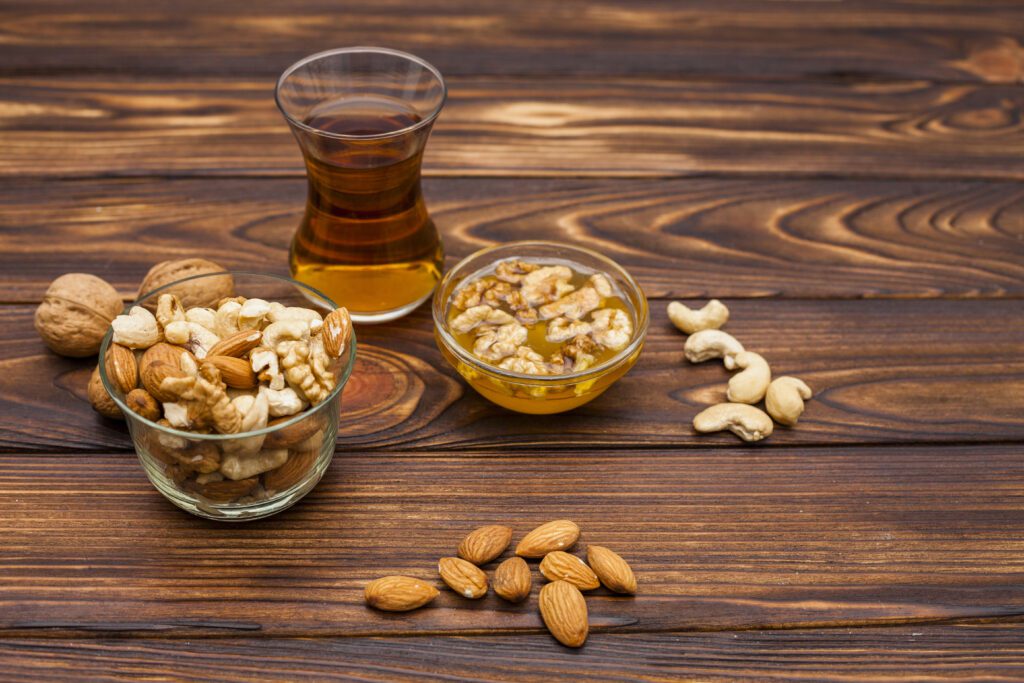
If you or someone you love is suffering from cancer, here are some practical dietary tips that may help:
1. Follow moderation: Extreme sugar or carb restriction is not needed. You can enjoy natural sugars (such as fruits), but limit processed sugar and sugary snacks.
2. Choose complex carbs: Replace refined carbs with whole grains, quinoa, brown rice, and oats in your diet. These provide long-lasting energy.
3. Maintain a balance between proteins and fats: Include proteins and healthy fats (such as nuts, seeds, and olive oil) in your meals. This is important for overall health and immunity.
4. Use sugar alternatives: Prefer natural sweeteners like honey, jaggery, or dates.
5. Do not ignore hydration: Maintain adequate hydration. Apart from water, herbal teas and fresh juices are also beneficial.
6. Consult a nutritionist: Every patient’s requirement is different. Get a customized diet plan made from a professional nutritionist.
Sample Diet Plan for Cancer Patients
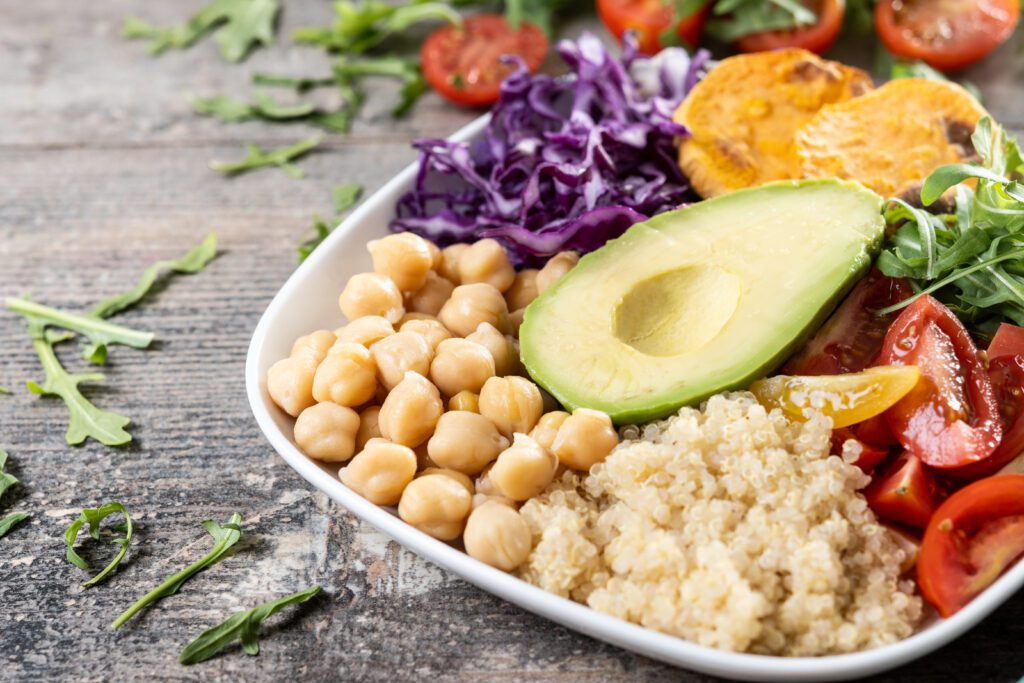
Breakfast
- Oats with almond milk, fresh fruits, and chia seeds.
- Whole grain toast with avocado spread.
Mid-Morning Snack
- Fox nut or roasted chickpeas.
- Fresh fruit bowl.
Lunch
- Brown rice, dal, and mixed vegetables.
- Quinoa salad with chickpeas and olive oil dressing.
Evening Snack
- Nuts and seeds mixture.
- Herbal tea and a small piece of dark chocolate.
Dinner
- Whole wheat bread, paneer vegetables, and salad.
- Grilled fish with sautéed vegetables.
Conclusion
So now the answer to the question is clear: “Should cancer patients avoid sugar and carbs?” No. Extreme dietary restrictions during cancer treatment can cause harm, but it is very important to follow a healthy diet with moderation and balance. Balanced nutrition supports recovery, and avoiding myths ensures that patients make informed decisions. Understanding the relationship between carbs and cancer can empower patients to maintain a healthier diet.
Remember, taking an informed decision and breaking the myths is the biggest strength against cancer.
FAQs
Should cancer patients completely stop eating sugar?
Absolutely not. Taking sugar in moderation is acceptable, but limiting processed sugary foods is a must.
Are all carbs bad for cancer patients?
No, complex carbs like fruits, vegetables, and whole grains are beneficial. Avoid refined carbs.
Does sugar directly feed cancer cells?
Glucose is important for every cell, including cancer cells, but it has not been scientifically proven that sugar directly promotes cancer growth.
How can a cancer patient maintain a balanced diet?
Take advice from a nutritionist and follow a balanced diet that includes carbs, proteins, and healthy fats.
Can cutting out sugar and carbs weaken immunity?
Yes, extreme restrictions can negatively impact both energy and immunity. Balanced nutrition is a must

